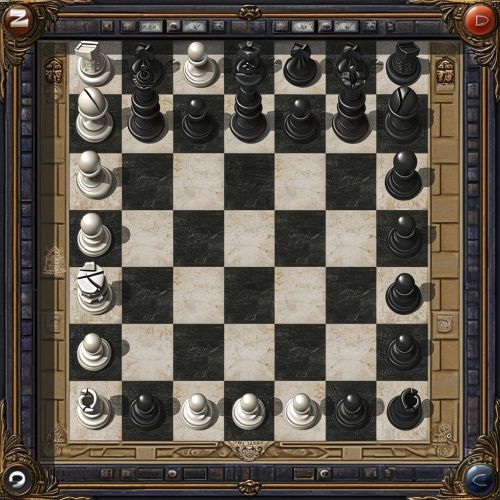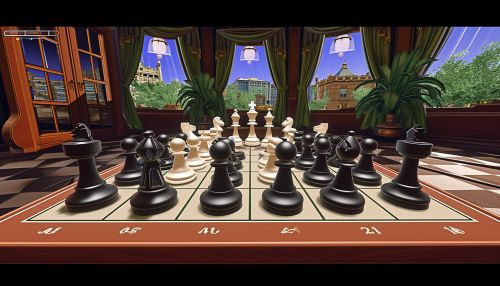Chess (video game)
History
The history of chess video games dates back to the dawn of computing itself. The earliest known chess program was written by Alan Turing in 1951, although it was too complex to be run on any existing computer at the time Turing.
In the 1970s, as computers became more powerful and accessible, chess games started to become commercially available. One of the earliest examples is the game "Chess" released by Peter Jennings for the Microchess platform in 1976 Microchess. This game was notable for being able to run on very basic hardware, opening up the world of computer chess to a wider audience.


Gameplay
The gameplay in chess video games is typically a direct adaptation of the traditional board game. Players take turns moving their pieces on an 8x8 grid, with the goal of putting the opponent's king in checkmate. The game ends when a player's king is in a position to be captured (checkmate), or when a player has no legal moves left (stalemate) Chess.
Some chess video games offer additional features beyond the basic game, such as different board and piece designs, tutorials, hints, and the ability to undo moves. Many games also feature AI opponents with adjustable difficulty levels, allowing players to practice and improve their skills.
Artificial Intelligence
Artificial Intelligence (AI) plays a crucial role in chess video games. The AI opponent must be able to evaluate the current state of the game, generate possible moves, and select the best one based on a given strategy AI.
Early chess programs used brute force search algorithms, which involved generating all possible moves and evaluating them using a static evaluation function. However, as the number of possible moves in a chess game is astronomically large, this approach quickly becomes unfeasible as the game progresses.
Modern chess AIs use more sophisticated techniques, such as alpha-beta pruning, which reduces the number of moves that need to be evaluated, and machine learning algorithms, which can learn and improve their strategies over time Machine Learning.
Impact and Legacy
Chess video games have had a significant impact on both the video game industry and the game of chess itself. They have been instrumental in advancing the field of artificial intelligence, with chess often used as a benchmark for AI research.
In the gaming industry, chess video games have demonstrated that complex, strategic gameplay can be successfully adapted to the digital medium. This has paved the way for other strategy games and genres.
On the game of chess, video games have made the game more accessible and have provided players with new ways to practice and improve their skills. They have also led to a greater interest in the game, with online chess platforms seeing a surge in popularity in recent years.
